Homepage » Publications » INTERSECTING » A memo to continue the INTERSECTING journey: Towards the ‘True North?
A memo to continue the INTERSECTING journey: Towards the ‘True North?'
A conversation with Christoph Podewils, director of communications at the Global Solutions Initiative, with Nicolas J.A. Buchoud, Gunnar Hartmann, Holger Kuhle, and Milindo Chakrabarti.
Christoph: What is the main reason for creating INTERSECTING?
Gunnar: The e-book series gradually emerged from a series of virtual dialogues that began back in the spring of 2020. Back then, all conferences, meetings, gatherings were canceled due to lockdowns and travel bans – literally the majority of scheduled cooperation plans were overthrown by the pandemic. It all looked as if SARS-CoV-2 was engulfing us all into uncharted territories.
The dialogue series was about pandemics, infrastructure and urbanization, i.e., analyzing mid-term and long-term impacts of the ongoing crisis in particular on infrastructure investment and financing, inclusion and social capital because they are critical dimensions of global and local policy-making. Our aim was to cooperate across borders, looking at articulations and connections between places, institutions, disciplines, and individuals.
If you review the result, INTERSECTING also operates on an intense visual level, highlighting actual circumstances. For us, real people and real places do matter.
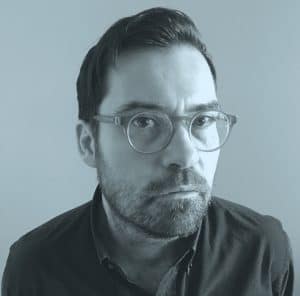
Christoph: What is the main reason for creating INTERSECTING?
Gunnar: The e-book series gradually emerged from a series of virtual dialogues that began back in the spring of 2020. Back then, all conferences, meetings, gatherings were canceled due to lockdowns and travel bans – literally the majority of scheduled cooperation plans were overthrown by the pandemic. It all looked as if SARS-CoV-2 was engulfing us all into uncharted territories.
The dialogue series was about pandemics, infrastructure and urbanization, i.e., analyzing mid-term and long-term impacts of the ongoing crisis in particular on infrastructure investment and financing, inclusion and social capital because they are critical dimensions of global and local policy-making. Our aim was to cooperate across borders, looking at articulations and connections between places, institutions, disciplines, and individuals.
If you review the result, INTERSECTING also operates on an intense visual level, highlighting actual circumstances. For us, real people and real places do matter.
Nicolas: INTERSECTING is the result of the engagement of about two hundred of leading scientists and academics, civil society representatives, think-tanks, investors, experts from very different fields, disciplines, geographic origins etc. This became INTERSECTING, which features original insights and proposals from nearly a hundred co-authors.
In addition to the first Dialogues of 2020, we have organized a dozen ad hoc sessions in 2021, with the University of Indonesia in Jakarta, the State University of Saint Petersburg and the University of Transportation in Moscow, the OP Jindal University in India and ADBI in Tokyo, at the occasion of the 2021 edition of the Global Solutions Summit, through the T20. This has proven a very effective way to update INTERSECTING, enrich the content and prepare the final edition.
There is much to learn from open dialogue formats, provided two pre-requisites are met:
- have a driving idea and test it to its limits. For us, it was the role of urbanization as a global geopolitical game changer, with infrastructure investments playing a catalytic role.
- think about policy-making from a cognitive standpoint. In other words, what can we learn from the magnitude and rapidity of ongoing changes in society, politics, how is our knowledge being formed, which could be summarized likewise: ‘what do we know about what we know?’
Holger: For us at GIZ, INTERSECTING makes a lot of sense. It is a way to continue the GIZ-GSI Solutions Lab on Scaling up sustainable infrastructure investments launched in 2019. It is also a way forward of exchanging our knowledge of implementation with think-tanks about questions of great concern: about how to use urbanization, that had silently changed our world in the past decade, as a dynamic in international development cooperation for a better world.
The crisis also sounds as a painful but necessary reminder that many environmental and social problems are pending and have roots in choices that were made, or not, in previous decades. Environmentally sensitive development, giving people their voices, overcoming inequalities are key when thinking about a fair and just recovering from the pandemic, even though the health crisis is far from being over and its effects will be long lasting.
Milindo: The last couple of centuries saw a tremendous growth in our engagement in “extracting” of resources, both from nature and from communities with lower propensity to extract from nature. “Intersecting” as an idea is emerging from the experiences therefrom. It is an emerging paradigm that aims at reversing the process of extracting and create an interlinked social[ecological system that facilitates cooperation among communities and nature in a spirit of solidarity such that the future existence of homo sapiens are not jeopardized through making the planet earth uninhabitable for any human being in the decades to come. The Covid pandemic, increasing inequality and the threats of irreversible climate change with its associated threats to the kingdom of living species are the necessary triggers that call for the paradigmatic shift from extracting to intersecting. Else we are in for a possible annihilation of life on earth.
Christoph: Why did you choose to focus on urbanization and on infrastructure?
Nicolas: What looks like an exceptional and ‘unprecedented’ crisis is part of a more enduring crisis. The aftershocks of the pandemic will have long lasting effects, many of which remain difficult to estimate, whereas the pandemic continues to unfold.
There are three reasons why we decided to focus on infrastructure.
The first is because infrastructure investments are a major issue at global decision-making level, one of many trillion of dollars/euros/renminbi involving central banks, multilateral financial institutions, public and private investors etc. The designated ‘global infrastructure space’ is a significant part of the G20 and therefore, any attempt to shape pandemic and post-pandemic responses will go through infrastructure systems.
The second reason is that we are not dealing with simple cause-consequence links, but with system change issues. Focusing on infrastructure is focusing on a series of underlying social, economic, political, technological factor. The urban world of today is largely a consequence of choices, arrangements, and connected phenomena from the past decade, that is since the 2008 global financial crisis which has seen the birth of the G20 as we know it today. It goes even beyond to the turn of the millennium when the world has turned more urban than rural and it also goes back to the end of the cold-war.
The third factor is that urbanization and infrastructure issues are just about complex system analysis but also about taking very concrete decisions about where, how, and what to invest in, while the pandemic has also repositioned the issue of social infrastructure as a core question, along with physical and digital infrastructure. The future of the 2030 Agenda of the United-Nations and of the sustainable development goals depends on infrastructure choices. In other words, the future of multilateralism depends on cities.
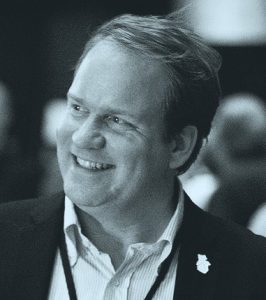
Holger: There is another reason why infrastructure investment matters. In its multidimensional character, infrastructure investments are THE leverage that can increase exclusion/inequality or on the contrary, make integration/inclusion possible. It is all the more crucial as emerging and developing countries and regions will be where the bulk of new infrastructure assets will be created in the coming two decades. Post pandemic reaction needs infrastructure that maximize redistribution.
Of course, the way we do organize and plan infrastructure is also crucial for tackling climate change. Starting from how to plan cities so they can tackle global warming and become carbon neutral, to manage services such as public transport, power generation and distribution etc.
Last but not least, the valuation of ecosystem services and so called nature-based solutions also depends on infrastructure choices, taking into account existing and sometimes obsolete systems, technological change and how this will shape sustainable urbanization.
Milindo: I would like to give a broader perspective on “intersecting”. True, it has focused, as of now, on urbanization and the elated infrastructure. It does not mean that the idea should remain confined only to such an issue. As we have been interacting with experts from different disciplines, it is increasingly getting clear that there are numbers of opportunities for applying the core idea of intersecting to look for solutions to several global, regional, national or local problems. For example, we are looking for ways to look at multilateralism through the lens of intersecting. Efforts are on to identify if intersecting as an idea can facilitate supply of global public goods. We are also keen to find out if this idea can help develop a better method of assessing our efforts towards achieving the SDGs. These efforts would require a close look at the possibility of bringing about a methodological interlinkage across disciplines. That is the real challenge to be surmounted if the idea is to emerge as a strong alternative paradigm to take care of the planet, people, prosperity, peace and partnership.
Further, on the issue of the linkage between urbanization, infrastructure and development vis-à-vis intersecting, we also need to flag that so far we talked of fundamentally the importance of physical infrastructure. Intersecting as an idea, also emphasizes that provision physical infrastructure in the absence of creation of complementary social infrastructure can often lead to their underutilization, if not misutilization, and help add to the growing inequality we are observing today.
Christoph: INTERSECTING is a lot about cities and communities. How does this fit into a global perspective in pandemic times?
Nicolas: INTERSECTING urbanization with infrastructure in the context of the COVID-19 pandemic highlights the obsolescence of predominant paradigms, such as the one of global cities, as illustrated by the focus of the G20 2021 Development Working Group on secondary cities. Until now and in the past three decades, cities have growingly functioned as open systems and the interweaving of physical and digital infrastructure and services have reinforced the case for complex-system analysis. In the meantime, many other cultural and political factors have been sstemically undervalued. It is time to recontextualize the urban question, which socio-economic health issues are also calling for.
The COVID-19 pandemic will probably mark the beginning of an era of turbulences as local, global, regional, metropolitan scales and systems collide, in an era of geopolitical decoupling weakening of multilateral institutions risks. In any case, what we do need to know to build a sustainable urban future requires more than one brain. We believe there is much to learn from biotechnologies scientific and industrial organization and apply it to other fields. The comparison between the functioning of mRNA, those discoveries form molecular biology that have inspired the development of new vaccines against the COVID-19, and the role of cities in shaping our urban and digital, data driven age could be fruitful. A more solid historical perspective on demographics, urbanization and epidemiology would also be very useful, following the direction of such research as the work on the ‘future of the future city’.7
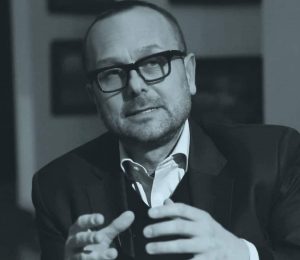
Holger: Just a short reaction to the question on how the emphasis on cities’ or communities’ perspectives fits into a global and multilateral perspective? There is a way between localism and globalization. We should start our thinking from here. Quoting the philosopher Bruno Latour, the issue is not to choose between localism and globalism but to ‘cultivate attachments’, which includes places, culture, traditions, while, at the same time, to ensure the connectivity to evolving global know how, skills and ways of life. 6
Milindo: Problems of urban habitat have led to emergence of several conceptual frameworks like polycentricity, agrarian-urban studies, to cite a few. Elinor Ostrom used the idea to study the policing system in metropolitan cities. Later the idea was extended to understand the complexities of governance in several other sectors, mostly in an urban set up. EU has been using the idea in governance of many of its urban locales. The recent issue of the journal “Urbanisation” has come out with a special issue on agrarian-urbanization. Intersecting as an idea intends to take the cue from these analytical frameworks to look beyond the urban settings and extend them to non-urban locations to generate a global appeal for it.
Christoph: What´s your recommendation to avoid stand-alone solutions in the future? Do you have some examples?
Holger: Guaranteeing low-threshold access to health services for all communities, all citizens, including migrant workers, is a guarantee for preventive care and avoid more costly healing solutions. Yet, health coverage is typically coupled to employment, putting individual and family entrepreneurs or freelancers in precarious situations. Providing social and health benefits independently of the employment status should therefore be a priority for national governments as well as all institutions dealing with mitigating the social effects of the crisis. To enlarge the access to social protection, a community-level approach might be a fruitful way forward, by capitalizing on existing self-organized groups of entrepreneurs, market women and men, or neighborhoods and using them as intermediary entry points to national social security systems. One enabling condition is that these groups would be given the legal and financial status necessary to collect contributions and pay out benefits.
In 2017 and 2019, the G20 has worked on developing a universal health coverage and started to work on recommendations for extended access to health services for all. The pandemic calls for infrastructure investments to focus on how their benefits can include public health, in particular in largescale metropolitan environments where people that have to travel across long distances from home have been much more exposed to health risks. Similarly, civil servants such as health workers or teachers who cannot or are not allowed to work remotely have been greatly exposed to health risks while their revenues depend on national and subnational constrained budgets. Reasoning in terms of ‘exposure’, ‘vulnerability’ and ‘access’ might be a good way to review existing infrastructure portfolio, as the first steps of a new sustainable economy.
Nicolas: Looking at frontier technologies and frontier policy-making is the same: none of it is rocket-science. It has lot has to do with supporting collective choices and organizing leadership that aim at creating more public health. For instance, what would the point of alleviating construction norms if this allows developers to create more housing, therefore creating jobs, but also to create dwellings including rooms with no windows, less ventilation etc.? What would be the point of pushing for expanded trade and commerce if more people fall into poverty and if this means tearing communities apart?
Milindo: Given the increasing complexities that drive the human society today, the idea of stand alone solutions is no longer viable. A recent book by Carlos Rovelli rightly argues that reality is made of relations rather than objects. If reality is to be captured through understanding relations, one cannot afford to look for stand alone solutions any further. Intersecting as an idea intends to decipher the maze of relationships – between man and nature, between communities and between several disciplines of knowledge to generate solutions that are feasible, implementable, accessible and affordable to the human race and nature.
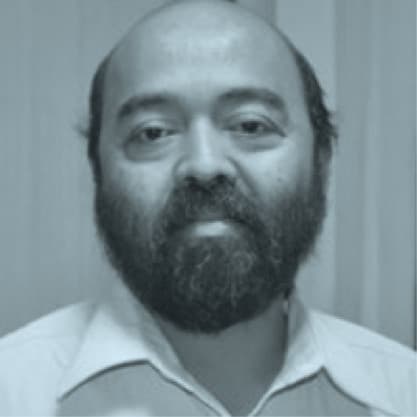
Christoph: Would you go as far as saying that health should be the cornerstone of future infrastructure investments?
Holger: The relationship between health and infrastructure is not just about healthcare. In addition, we get rid of a false idea, which is that creating new, modern, state of the art infrastructure will have trickle-down effect on health. There is no such thing as health trickling down effect deriving from infrastructure investments. On the contrary, infrastructure programs should be designed in light of connected health circles, starting with healthcare and up to a One Health planetary approach, explicitly designing and financing infrastructure to create health equitably.
The main infrastructure milestones for city development in the past 150 years had positive but also negative consequences in the long run. The steam, electricity and combustion engine revolutions allowed for the creation of mass-transportation and for the invention of the automobile. Cities got lights and underground trains, trams, elevators and sprawled. Industry and traffic related air pollution, buildings and construction lacking climate resilience capacity and including polluting chemicals, the spatial division between poor and rich, cities and natural habitat fragmented by highways and other networks have increased. Instead, there is a need of infrastructures for people especially for those who cannot escape or buy healthy substitutes, although it is a matter for us all.
As an immediate priority, the implementation of recovery programs and the definition of multilateral priorities such as through the G20 should seek to maximise the opportunities of existing infrastructures to transform it to create and support health and wellbeing.
Nicolas: INTERSECTING clearly highlights the importance of the infrastructural determinants for health with potential for negative and positive effects on physical and mental health. Working at the crossroads of infrastructure systems and health systems is no luxury, considering the impacts of the COVID-19 pandemic and potential future threats. Connectivity can no longer go without sanitary prevention.
Milindo: The pandemic has shown us very clearly that my health profile and security is not independent of that of another individual. It is not independent of zoonotic pressure as well. The iron is hot and it is the right time strike. Think intersecting.
Christoph: How can we design a set of principles to develop a comprehensive intersecting assessment framework?
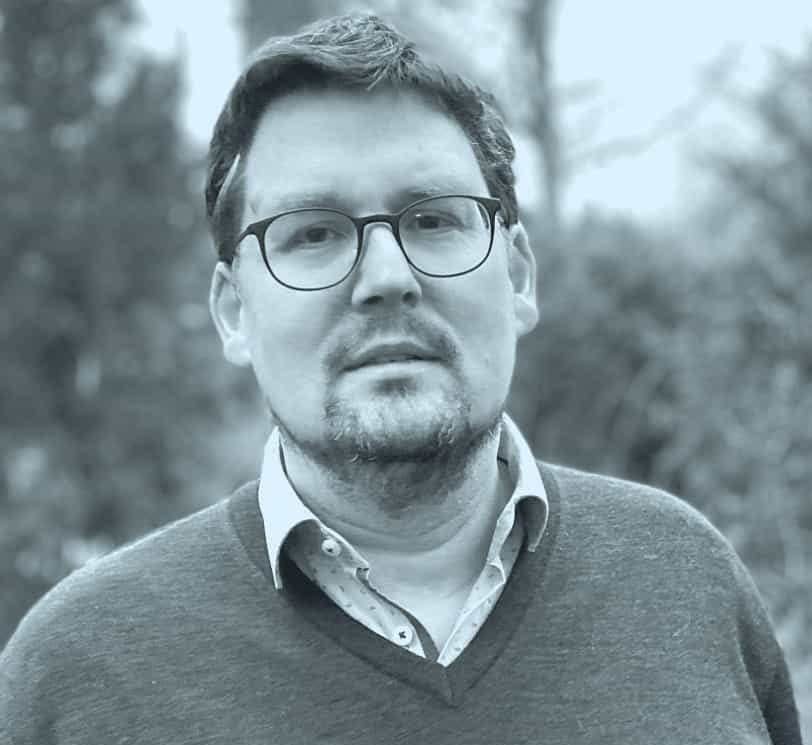
Holger: First of all, using the global sustainability agendas as framework. The Agenda 2030, the Paris Agreement within the United Nations Framework Convention on Climate Change (UNFCCC) and the Convention on Biological Diversity (CBD). They call for no less than ‘transforming our world’. To many people, this it is also a call to transform the way humanity defines economy and organizes production and consumption. For instance, economic decisions and actions unfold across multiple areas of society, people’s life and nature. It extends from the production to satisfy basic needs over disruptive innovations to long transformations of societal relationships and planetary living conditions. So far, the “classical” responses to challenges has consisted of regulating and mainstreaming across sectors, e.g. environmental assessment and management, setting standards etc. What is required today are rather transformative policies which facilitate fundamental change across sectors and societies.
Christoph: What are the possible actions required for designing an inclusive policy drawing from the idea of intersecting?
Holger: Needless to say: we need to acknowledge that our world is complex and there are power dynamics. Intersecting is no different than navigating within complexity and those dynamics. It is about facilitating multidimensional interfaces. An inclusive policy drawing is basically about redefining relations, responsibilities and roles in society at a local, national and global level.
We have organized another dialogue series that focused on the economic responses to the pandemic followed by a series on how to unleash transformation in economic development cooperation. Here we identified as a general way forward, first of all, the prerequisite to establish and cultivate spaces for science, society, policy interfaces and advanced democracy. This should allow the creation of emerging partnerships for & of change. The enabling of new narrative & social change of values, norms, beliefs and behavior is key. Based on this, one should let ambitions & new mainstream emerge. Finally, the work on resilience of new mainstream field(s) would be essential.
Secondly, there is the need of iterative processes between global and local levels because of a local context irrelevance trap. We should consider the fact that scaling also aligns with standardization, which might go against the social change since those solutions are typically specific to local context. Complex systems are emergent, non-linear in change, hard to predict. In summary actions required for designing an inclusive policy drawing from the idea of intersecting is all about a common understanding and spaces where a shift to evidence-based just decision making could emerge.
Let’s remember the very interesting notion of ‘crisis municipalism’ that has come up over of the pandemic time. Cities have played a major role in mitigating the impacts of the crisis and help maintain social stability. This says something how critical it is that people, including the most vulnerable ones, can have a say in future decision-making processes. Let’s watch the infrastructure priorities. Subnational governments investment capacities have been affected by the pandemic while the needs for reinforced social infrastructure have grown. Beyond immediate mitigation strategies, one priority is to break down spirals of socio-economic downturns spurred by decades-long underinvestment in social and human “capital”.
Building pandemic recovery pathways, building the future, should be an opportunity for dialogue between citizens and their representatives at city, regional and national level, airing their views about what has gone wrong and how to improve resilience, welfare, protection, future-oriented policies, etc. When it comes to urban infrastructure, the medium and long-term lessons that are to be drawn should remember: the acceptance and appropriateness depends always from who sits together at the table.
Christoph: How to ensure that people will have a say in recovery and future investment priorities?
Holger: Already before the pandemic crisis, it was clear how it is important to keep an eye on questions of trust and the acceptance of knowledge-based, sometimes controversial options for action and decisions.
A few years ago, the political scientist Roman Krznaric described what he quoted as ‘the most original experience in the history of modern democracy’, that is a design-thinking initiative in the small city Yahaba in Japan. 9 Inhabitants were invited to discuss long term investments and their impacts on local tax in an unusual way. They had to put themselves in the shoes of the inhabitants of 2060 and by doing so, they painlessly agreed to see an increase in their water bills to finance long- term investments.
Valuing singular local urban experience to revise urbanization strategies in light of the integrity of global ecological systems could bring a lot in reinforcing citizens engagement as cities around the world are interdependent, and urbanization and urban policy can no longer remain an exclusively domestic matter.
How multilateral institutions can build on this paradigm is now on the table of the G20 as well as of the United-Nations. Infrastructure investments, which are managed and regulated globally by international financial institutions, private and institutional investors and national governments could serve as a starting point maximizing the impacts of multilateralism on sustainable urbanization, e.g., on our common sustainable future.
Christoph: You have made clear that INTERSECTING was built as a ‘compass for recovery.’ What would be the priorities for a balanced and just recovery?
Holger: INTERSECTING the voices of this book make clear that both the understanding of our problems and the answers to them significantly vary depending on which sets of analytical frameworks we use, which angle, which geographic scope we use. This is an important indication that finding adequate and citizen’s supported answers to global urbanization and infrastructure needs are key for a balanced and just recovery. After all, what we need is what Michael Cohen calls an infrastructure of distribution.
A recovery from the multilayered COVID-19 crisis, which affects beyond health many domains, would benefit from the involvement of diverse expertise. It would also accept the fact that it isn’t about one size fits all sets of solutions, be it financially, in terms of governance, engineering systems etc. The –modest- contribution of INTERSECTING is to engage with different grids from different disciplines and different perspectives and creating a space for continuous dialogue.
Nicolas: The pandemic has abruptly repositioned public health at the very center of the social, economic and political life, which includes health care and goes much beyond. Intersecting health with various environmental, institutional and technological dimensions is a powerful conceptual shift which goes as far as to reposition the question of equity and justice at the very center of any growth and investment choices.
